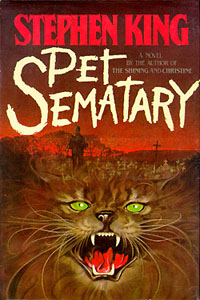

The first training session of the season is normally a simple exercise in maneuverability, but for Mike Bossy it was a nightmare. Suffering an excruciating pain in the back, his first thought was that it was something new and he'd get over it. Bossy hated training camp, exhibition games and everything that preceded the opening of the season, and the pain reminded him of that. Various doctors made different diagnoses but treatment didn't produce any results. That 10th season was the worst in his entire NHL career. It was the first time he was unable to score 50 goals, managing only 38 instead. He refused to participate in the 1987 Rendez-vous series when his affliction got the best of him. In fact, it was enough to put an end to the professional career of the Bossy - one of the top scorers in the entire history of the league. And the first player to speak out publicly against rough play on the ice. Family legend has it that Bossy's father placed a plastic hockey stick in the hands of two-year-old Michael to see what would result. Ever since he was a kid, he had his sights set on the NHL. For him, it wasn't so much a dream as a plan and he realized full well the stages he would have to go through: the peewees, then juniors, followed by a draft and finally the NHL. Bossy's stats as a young player suggested he might indeed realize his goal. He had a season when he scored 170 goals. There was also a game in which he scored 23 times. The only reason he didn't have any assists in that game was that hardly anyone else but five-year-old Michael even touched the puck.
When the time came to choose a junior club, the family gave preference to the Laval Nationals, a very ordinary team that was based in a suburb of their native city of Montreal. The club even sponsored the entire family's move to a home near the stadium. That's how 14-year-old Mike Bossy joined the Quebec Major Junior Hockey League. And it was an experience that might make a player think about giving it all up. The players had the habit of taking cheap shots at their opponents. In addition, the wild fans turned every game into a risky adventure. The coaches egged their boys on, and the boys readily followed instructions. Bossy had the misfortune of being on the wanted list. He had to pay for every goal he scored. During his junior career, he often heard sinister whispers from his opponents: "You'll be lucky to make it to the end of this game" or "Watch your back." Bossy also doffed his gloves to protect himself but more often than not found himself lying on the ice. Young hockey players in North America do go through that, but Bossy learned from his own bitter experience that violence and bullying on the ice were unacceptable. The sad thing was that after finishing his junior career with a broken nose and missing teeth and 309 goals in four seasons, Bossy was considered a timid player by NHL scouts. In the Amateur Draft of 1977, 12 teams gave preference to other players. The New York Rangers and Toronto Maple Leafs did this twice. Only the New York Islanders made him their first choice, 15th overall.


Bossy turned up at training camp with a desire to show what he could do. Coach Al Arbour placed him on the same line as two other up-and-coming stars - Bryan Trottier and Clark Gillies. In their first exhibition game, the Islanders mounted a good attack. Bossy and Trottier raced the length of the ice, outmaneuvering their opponents and flipping passes back and forth. Bossy didn't score, but Arbour said after the game, "We picked the guy we needed!" In his first season, Bossy scored an all-time rookie record of 53 goals and chalked up a total of 92 points to win the Calder Trophy. No one doubted his talents as a sharpshooter, but questions surfaced about whether he would ever be able to play defense. In the junior league, Bossy hadn't ever tried to play defense well on a mediocre team that had needed a goal-scoring machine to remain afloat. It was in the NHL that he had to learn the ABCs of playing in his own end. It was very rare to come across press reports about how Wayne Gretzky or Mario Lemieux played in their own end zones, but journalists wrote a lot about Bossy's defensive skills. Having scored over 50 goals in three successive seasons, Bossy needed a fresh impetus. So he invented it. The great forward for the Montreal Canadiens, Maurice 'Rocket' Richard, scored 50 goals in 50 games in the 1944-45 season. Thirty-six years later, no one had ever been able to repeat that feat. Only a very few of his closest friends, including Trottier, knew about Bossy's plan. They liked the idea. But his partners couldn't imagine what it was going to cost them. At first, everything went according to plan, even a little better as Bossy reached the mark of 25 goals in 23 games. The whole league began talking about Bossy. Players were assigned to personally guard Bossy. But the media hadn't caught on yet. It was only after 36 games in the regular season, when Bossy had six hat tricks to his credit, that one journalist inquired whether the Islanders forward had his sights set on Phil Esposito's record - 76 goals in 78 games. That was when Bossy admitted which record he was after. The news caused an uproar.
To add to the tension, Charlie Simmer, a forward with the Los Angeles Kings, had 46 goals in 49 games at the very same time. In Simmer's 50th game, which was played several hours earlier than the one at Long Island, Simmer got a hat trick and was just one goal shy of the mark. It was up to Bossy. After two periods in the game against the Quebec Nordiques, the scoreboard at the Coliseum showed 3-3, but Bossy hadn't scored any of those. Things just weren't clicking for him. All the tension in the crazy race for Richard's record was getting to him. During intermission, Bossy closeted himself in the washroom. Not wanting to hear the words of support from his partners, he smoked one cigarette after another, running his words for the post-game press conference through his head. With a minute and a half to go before the final whistle, Trottier made a beautiful pass to Bossy in the left faceoff circle and Bossy dumped it in the net. He began jumping up and down on the ice and the fans went wild, throwing all kinds of objects onto the ice. In defiance of NHL rules, the Islanders also spilled onto the ice. A telegram of congratulations from Maurice Richard was waiting for Mike in the dressing room. During the draft, the scouts had tabbed Bossy as a timid player. He tried his best to lose this label during his professional career, but he also hated violence on the ice and considered fighting and roughing as beneath contempt. It seemed to him that that was why the fans in North America didn't treat hockey as seriously as they did baseball, basketball or football, but people in control of the game in North America believed the fans enjoyed watching the fights on the ice. Bossy's goal was to become the best player of his era, but that title was always awarded to someone else: Guy Lafleur, Bryan Trottier, Wayne Gretzky. He was regarded more as a natural-born sniper than a great hockey player. Besides, Bossy was never the highest scorer in a season. Many of his individual records were eclipsed long ago. Gretzky scored 50 goals in 39 games. But in the record books, the most 50-or-more goal seasons list is headed by Mike Bossy (nine times). On top of that, Mike Bossy has four Stanley Cup rings to his credit. He was inducted into the Hockey Hall of Fame in 1991 and had his number retired by the Islanders.







































































































































































